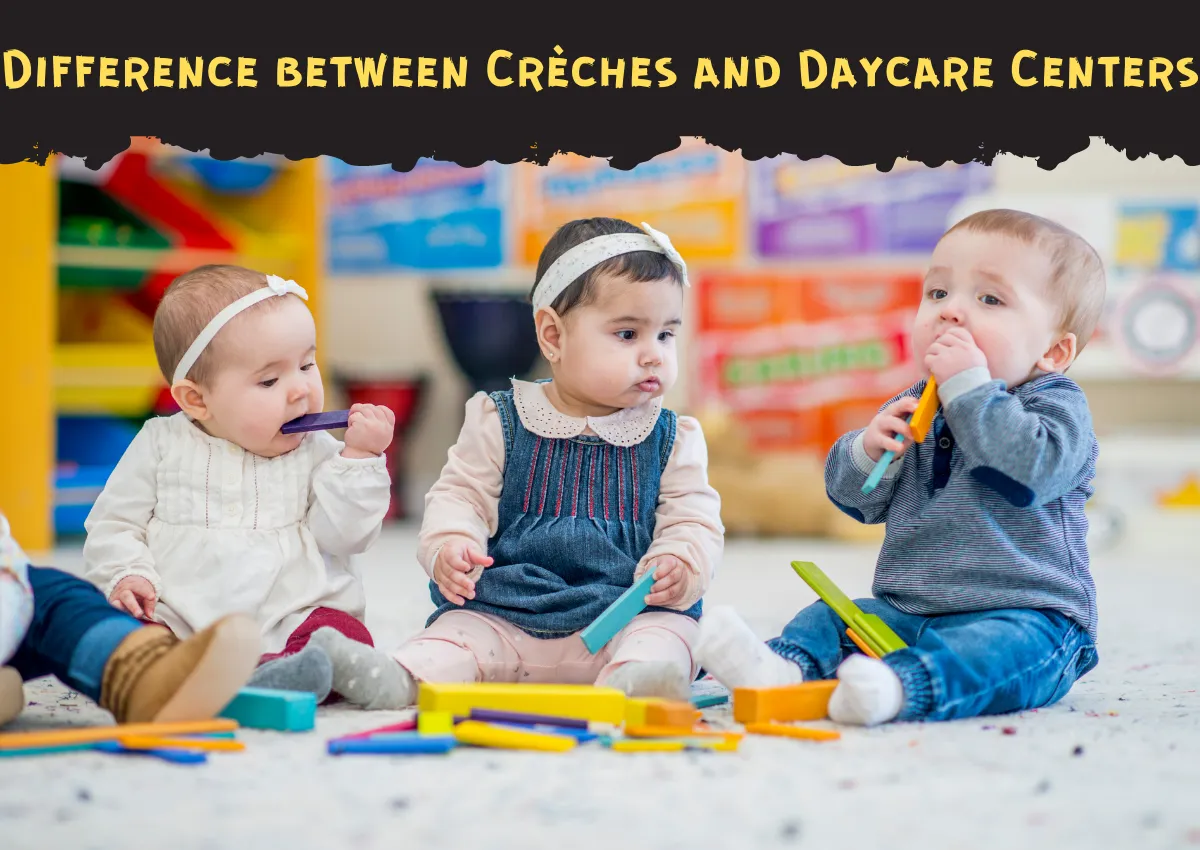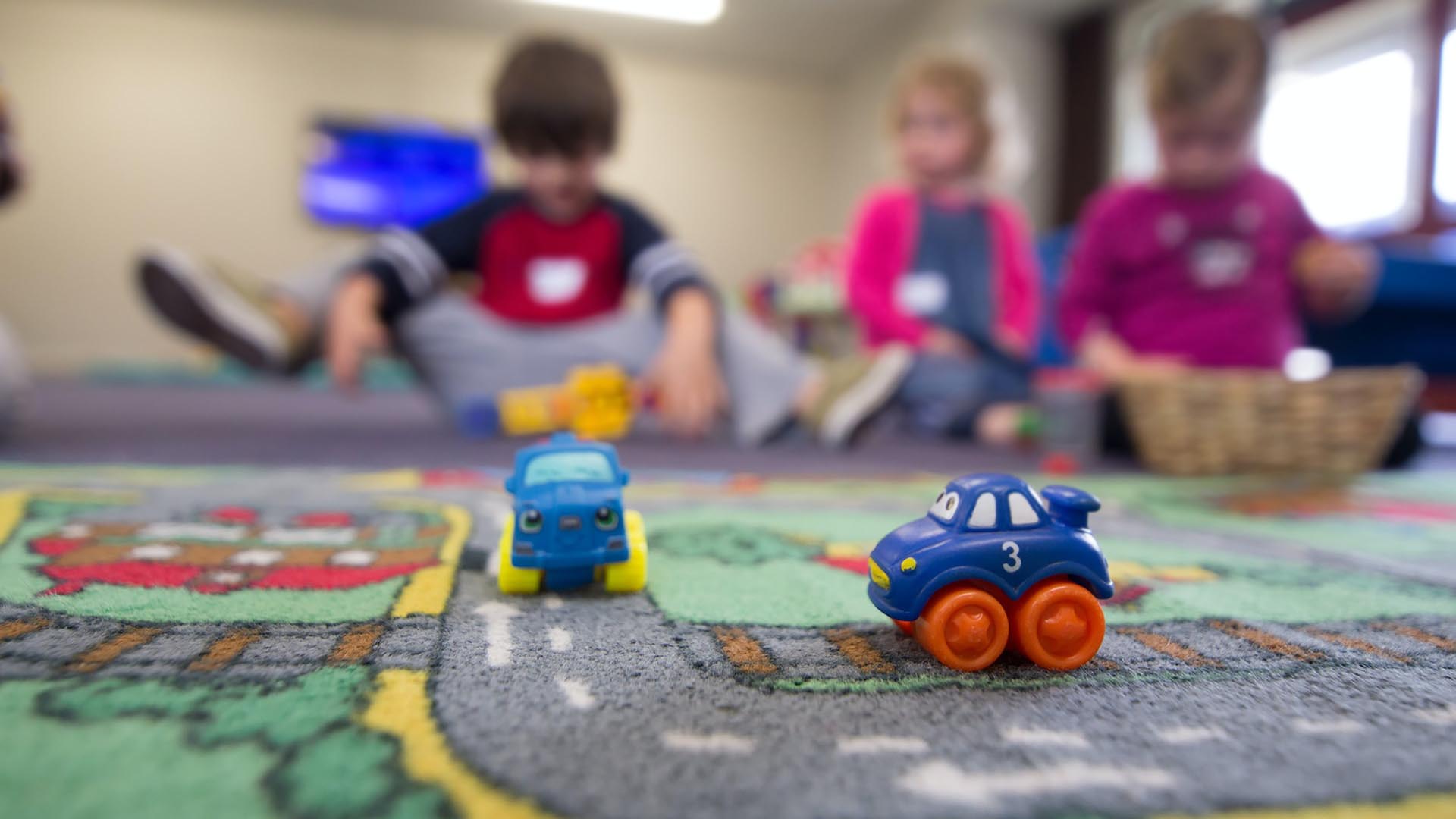Comprehending the Importance of Childcare for Your Toddler's Social Advancement and Understanding Knowledge With Engaging Tasks
The value of day care in forming a toddler's social advancement and understanding can not be overemphasized, as it supplies an organized atmosphere filled with engaging activities that are essential for early development. As we explore the complex advantages of day care, one need to think about how these foundational experiences affect a child's future social communications and total development.

Advantages of Social Communication
Social communication plays a vital function in the developmental trajectory of young children, acting as a structure for crucial social skills. Engaging with peers allows toddlers to exercise interaction, learn to share their feelings, and create empathy. Via shared play and participation, they begin to comprehend social norms, such as taking turns and sharing, which are important components of effective social connections.
Moreover, social interactions add to cognitive development. As toddlers interact with their peers, they improve their language abilities, broaden their vocabulary, and improve their capability to verbalize feelings and thoughts. This exchange of ideas fosters essential thinking, as kids find out to bargain, fix troubles, and navigate conflicts.
Additionally, social communication promotes emotional policy. Exposure to various social scenarios helps young children identify and manage their emotions, inevitably causing higher durability and adaptability. The capacity to create relationships and accessories likewise improves their sense of belonging and self-confidence, which are crucial for general health.
Relevance of Involving Tasks
Involving tasks are essential for fostering a stimulating environment that improves toddlers' social growth. These tasks not only mesmerize young kids's interest yet also advertise energetic participation, enabling them to discover their surroundings creatively. With play-based knowing, kids establish essential abilities such as analytic, collaboration, and compassion, every one of which are vital for building healthy relationships with peers.
Taking part in engaging activities, such as group video games, art tasks, and interactive narration, motivates young children to express their feelings and ideas. This expression is crucial for psychological intelligence and aids them understand the viewpoints of others. When toddlers engage in these tasks with each other, they discover to bargain functions, share sources, and collaborate, which are essential facets of social interaction.
In enhancement, a well-structured setting that consists of revitalizing and diverse activities helps in maintaining kids encouraged and focused. This motivation fosters a love for discovering and exploration, laying the foundation for future educational experiences. Inevitably, engaging tasks in day care settings are pivotal fit social skills, preparing young children for successful communications beyond the class, and nurturing their overall growth throughout these developmental years.
Developing Communication Skills
Reliable interaction skills are essential for young children as they browse their early social communications. In a daycare setup, kids are exposed to diverse social situations that motivate non-verbal and verbal communication. Talking with peers and caretakers promotes language development, enabling toddlers to reveal their emotions, requirements, and thoughts better.

Moreover, day care settings Learn More provide possibilities for kids to mimic and observe communication styles of their grownups and peers. This empirical understanding is important as children notice social cues, tone, and body language, which are important components of effective interaction.
Fostering Independence and Confidence
As kids fine-tune their interaction skills, they concurrently begin to explore their independence and develop confidence in social setups (baby daycare near me). Daycare offers an organized setting where youngsters can participate in different activities that motivate autonomy. From picking their very own tasks to participating in group tasks, these experiences encourage young children to choose and express themselves
In a day care setup, children are usually offered with chances to solve problems individually, whether it's determining how to share toys or resolving disputes with peers. This fosters important thinking and promotes self-reliance. Furthermore, caretakers sustain this growth by supplying favorable reinforcement and assistance, aiding children to navigate social communications with confidence.

Team activities, such as participating games or collective art projects, promote synergy and teach young children the importance of collaborating. Via these interactions, youngsters learn to communicate their sensations and ideas, better enhancing their self-confidence and social skills.
Inevitably, fostering freedom and confidence in day care not just prepares toddlers for daycare near me for infants future social settings yet additionally lays the groundwork for a resistant attitude, furnishing them with crucial life abilities as they remain to find out and expand.
Structure Lifelong Knowing Foundations
A strong foundation for lifelong learning is vital for young children, as their early experiences form their attitudes in the direction of education and learning and inquisitiveness. Day care settings play a crucial role in this developmental phase by supplying organized opportunities for expedition and involvement. Engaging activities, such as group play, arts and crafts, and interactive storytelling, promote cognitive development while urging social interaction.
Through these experiences, toddlers discover necessary skills such as problem-solving, communication, and participation. They are presented to the principle of learning as an enjoyable, collaborative procedure instead of a duty, which cultivates a positive mindset towards education and learning. Direct exposure to diverse perspectives and peer communications in daycare settings improves psychological knowledge, advertising empathy and resilience.
Caregivers and teachers additionally add considerably to developing this foundation by modeling inquisitiveness and interest for knowing. By urging inquiries and promoting conversations, they develop an environment where children feel risk-free to express themselves and discover originalities. Inevitably, the mix of supportive relationships and interesting activities in daycare settings prepares for a lifelong love of learning, furnishing toddlers with the abilities and frame of mind required for future scholastic and individual success.
Final Thought

The relevance of day care in forming a kid's social growth and discovering can not be overstated, as it provides an organized environment filled with interesting tasks that are essential for early development.Social interaction plays a crucial role in the developing trajectory of kids, offering as a structure for essential social abilities. When toddlers involve in these activities together, they discover to discuss duties, share sources, and team up, which are fundamental elements of social interaction.
Eventually, engaging tasks in daycare setups are essential in shaping social abilities, preparing toddlers for successful interactions beyond the class, and nurturing their general advancement throughout these formative years.
Inevitably, the advantages of interesting tasks in daycare settings play a substantial role in preparing toddlers for future social communications and obstacles. toddler daycare near me.